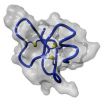(Press-News.org) An Anglo-Swiss research project has found that the impact of disease-resistant genetically-modified wheat plants on insects may be negligible.
Many studies have looked at the effects of genetically-modified (GM) plants on single non-target insects. However, agro-ecosystems are characterised by numerous insect species forming food webs. This study is the first to investigate different transgenic disease-resistant wheat lines and their effect on the structure of whole aphid-parasitoid food webs.
The findings are published this week in the Royal Society journal, Biology Letters, in the paper: "Aphid-parasitoid community structure on genetically modified wheat."
The study was carried out by Simone von Burg, a PhD student at the University of Zurich, in collaboration with Dr Frank van Veen of the University of Exeter and with Dr Fernando Alvarez-Alfageme and Dr Jörg Romeis of the Agroscope Reckenholz-Tänikon Research Station ART, also in Zurich.
A concern raised with respect to genetic modification (GM) of crops is that the plants may not just affect the disease or pest to which they are meant to be resistant, but may also have negative effects on other valued, non-target species.
Dr van Veen said: "The main conclusion in a nut shell is that while genetic modification has considerable ecological effects, the differences between the GM wheat strains and their non-GM counterparts are similar to the differences we find between different conventional (non-GM) wheat strains. Moreover, these differences were not consistent between the two study years.
"So, within this context, there appear to be no ecological problems associated with the genetically-modified wheat lines tested in this study."
The experiments took place in Switzerland but the results were analysed in the UK at the laboratories of the Centre for Ecology and Conservation at Exeter's Cornwall Campus where Dr van Veen is based.
They looked at the insect food webs that naturally colonised a number of disease–resistant GM and non-GM strains of wheat in a semi-field and open field system.
The study compared the networks of feeding interactions of three species of herbivores that feed on the wheat, primary parasitoid wasps (eight species) that feed on the herbivores and secondary parasitoid wasps (13 species) that feed on the primary parasitoids. The properties of such interaction networks are thought to affect the dynamics of these complex systems and thereby the probability of insect pest outbreaks.
Simone von Burg added: "It is interesting to see that plant traits can affect the ecological community all the way up to the 4th trophic level, three feeding links removed from the plant, something which has been reported for several plant species now."
###To view the paper, please visit: http://rsbl.royalsocietypublishing.org/lookup/doi/10.1098/rsbl.2010.1147
For further information, please contact: Simone von Burg at simone.vonburg@ieu.uzh.ch or Frank van Veen at F.J.F.Van-Veen@exeter.ac.uk.
New Anglo-Swiss research questions impact of GM wheat on insects
2011-01-22
ELSE PRESS RELEASES FROM THIS DATE:
Nanoworld in color
2011-01-22
This press release is available in German.
Lights off – projector on. Lecture theaters, conference halls and seminar rooms currently have to be darkened if the speaker wants to project a presentation on screen. Unfortunately, the attention of the listeners goes off with the lights, and tiredness takes over. A new technique promises to remedy this situation. The projectors of the futur will not only be small and easy to use but also shine so brightly that the images appear sharp and clear, even in a sun-filled room.
The image illuminating the wall of the Fraunhofer ...
Researchers reveal function of novel molecule that underlies human deafness
2011-01-22
New research from the University of Sheffield has revealed that the molecular mechanism underlying deafness is caused by a mutation of a specific microRNA called miR-96. The discovery could provide the basis for treating progressive hearing loss and deafness.
The research team, led by Dr Walter Marcotti, Royal Society University Research Fellow from the University's Department of Biomedical Science, in collaboration with Professor Karen Steel at the Sanger Institute in Cambridge, discovered that the mutation in miR-96 prevents development of the auditory sensory hair ...
New study of environmental contaminants in breast milk
2011-01-22
The levels of environmental contaminants in a mother's body decrease during breast-feeding. After a year of lactation, the levels of a number of environmental contaminants in breast milk drop by 15 – 94 per cent, according to a recent study from the Norwegian Institute of Public Health. There has been little study into this topic previously.
Breast milk is nutritionally the best food for infants and contains all the substances a child needs for optimal growth and development. However, breast milk contains low but measurable concentrations of environmental contaminants, ...
With cloud computing, the mathematics of evolution may get easier to learn
2011-01-22
BUFFALO, N.Y. -- An innovative, educational computing platform developed by University at Buffalo faculty members and hosted by the cloud (remote, high-capacity, scalable servers) is helping UB students understand parts of evolutionary biology on an entirely new level. Soon, high-school and middle-school students will benefit from the same tool as well.
Pop! World, developed by UB faculty members with a $250,000 National Science Foundation grant, takes advantage of cloud computing, which allows programs to run on remote servers instead of through departmental or institutional ...
New melt record for Greenland ice sheet
2011-01-22
New research shows that 2010 set new records for the melting of the Greenland Ice Sheet, expected to be a major contributor to projected sea level rises in coming decades.
"This past melt season was exceptional, with melting in some areas stretching up to 50 days longer than average," said Dr. Marco Tedesco, director of the Cryospheric Processes Laboratory at The City College of New York (CCNY – CUNY), who is leading a project studying variables that affect ice sheet melting.
"Melting in 2010 started exceptionally early at the end of April and ended quite late in mid- ...
Preventing tooth decay in the youngest American Indians
2011-01-22
INDIANAPOLIS – A study conducted in four American Indian communities in the Pacific Northwest presents an effective strategy to convince mothers to switch young children from drinking sweetened soda to water and shows that eliminating these sugary drinks from the diets of the youngest members of the tribe significantly decreased tooth decay.
The results of the dental arm of "The Toddler Overweight and Tooth Decay Prevention Study" (TOTS), which targeted American Indians from birth to 30 months of age, appear in the current issue (Volume 20, Number 4) of the peer reviewed ...
Mars Express close flybys of martian moon Phobos
2011-01-22
Mars Express has returned images from the Phobos flyby of 9 January 2011. Mars Express passed Mars' largest moon at a distance of 100km.
The HRSC-camera recorded images of Phobos on 9 January 2011 at a distance of 100 km with a
resolution of 8.1 m/pixel. Due to the stereo viewing geometry during the flyby a small part of
the moon’s edge is only visible for the right eye resulting in odd 3D-perception in this area.
This part has been slightly adjusted for better viewing. Also, for the left eye at the left
edge of the image four small data gaps have ...
Defense mechanism against bacteria and fungi deciphered
2011-01-22
Under standard laboratory conditions, the human beta-defensin 1 (hBD-1), a human antibiotic naturally produced in the body, had always shown only little activity against microbes. Nevertheless the human body produces it in remarkable quantities. The solution to the puzzle was the investigation process itself, as the research group led by Dr. Jan Wehkamp at the Dr. Margarete Fischer-Bosch Institute for Clinical Pharmacology of the Stuttgart-based Robert Bosch Hospital found out.
Before the research group took a new approach to this research, defensins were usually tested ...
NFL linemen recover from back surgery, and so can you
2011-01-22
CHICAGO --- If NFL linemen can recover from back surgery and return to their spine-bruising careers, so can you get back into your "game" of horsing around with your kids or working out at the gym after back surgery.
That's the good news from a new Northwestern Medicine study that found 80 percent of NFL lineman – whose spines are especially vulnerable to degeneration – were able to return to play many more games after the surgery. These elite athletes spend a lot of time in a squatting stance that puts tremendous stress on their spine.
The study is encouraging ...
Mindfulness meditation training changes brain structure in 8 weeks
2011-01-22
Participating in an 8-week mindfulness meditation program appears to make measurable changes in brain regions associated with memory, sense of self, empathy and stress. In a study that will appear in the January 30 issue of Psychiatry Research: Neuroimaging, a team led by Massachusetts General Hospital (MGH) researchers report the results of their study, the first to document meditation-produced changes over time in the brain's grey matter.
"Although the practice of meditation is associated with a sense of peacefulness and physical relaxation, practitioners have long ...




